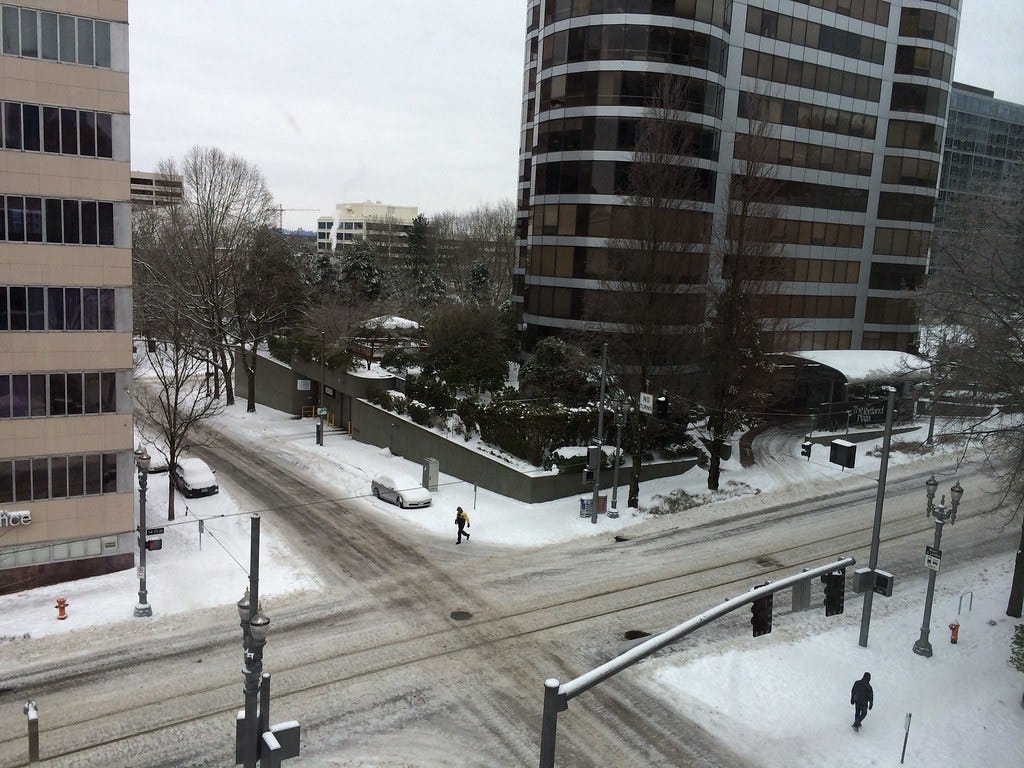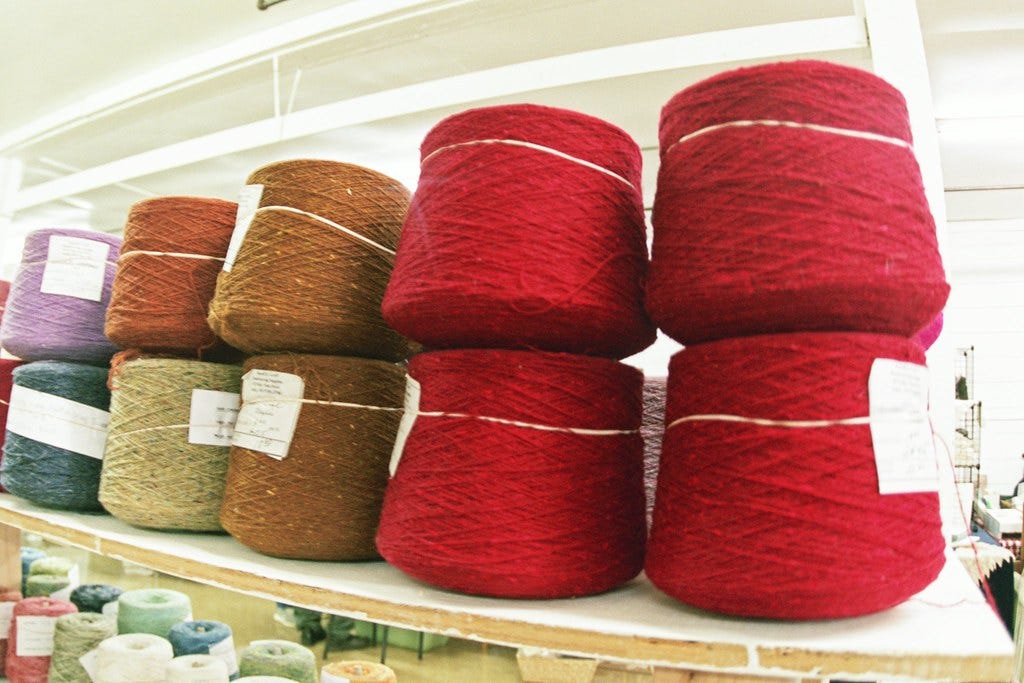Rukaiyah Adams: Forward Together, Even in the "Aftertimes"
As a fourth generation Oregonian, the only Oregon Way I know is forward together.
Rukaiyah Adams is the Chair of the Albina Vision Trust.

Something about this moment has stripped away artifice and focused our attention on what matters most. A pandemic that started on the other side of the world is causing devastating consequences to our bodies, families, and communities here at home. There is no denying that we have been forced to adapt our day-to-day behavior in service to an enduring, shared value: We care deeply for each other.
Snow and ice storms have been made more extreme by climate change; continued and more severe changes to our environment have forced us to alter where and how we can live. There is absolutely no denying that we are being forced to permanently adapt our behavior in service to an enduring, shared value: We care deeply for each other, including for generations that will be born long into the future.
Power outages have left millions of us shivering and questioning the wisdom of undermining the effectiveness of government. Our complex world has made us more fragile and interdependent. Whether we like it or not, we will be forced to adapt our behavior in service to an enduring, shared value: We care deeply for each other, even those that we do not know personally.
Over the past year, the immense and immediate need of those in our community has compelled us to care more deeply. But, caring deeply does not necessarily mean acting for our collective wellbeing. And it certainly does not mean that in the “aftertimes,” we will continue to focus on what matters most for all of us; even if we could agree on who “us” really is.

So, you see, February—as painful as it has been—is also remarkable. It is remarkable because–despite the shrill discord magnified by digital factories of rage, hate, and vitriol–here we are, reckoning with an abiding devotion to care for each other that is under constant assault by our human failings.
We hate. We discriminate. We exploit. We exclude. We try to expel.
But we haven’t given up trying to find a way forward.
We lend generators. We Zoom with the isolated. We deliver groceries to strangers. We respond to the disasters devasting our emotional, physical, and cultural well-being.
Let’s be clear, I’m not headed toward kum ba yah sentiment. I know that some of what I have politely euphemized as “human failings” cannot be reconciled, at least not individually. As James Baldwin put, “We can disagree and still love each other. Unless your disagreement is rooted in my oppression and denial of my humanity and right to exist.”
In tense times, when we cannot reach directly reach across the aisle, maybe all that we can do is reach out our arms as far as we can toward the things we trust. In so doing, the overlapping networks of friends and families and pow wows and soccer teams and book clubs and community gardens and small hometowns and hiking paths and stewpots of home cooked food and kitchen tables covered with sweet potato pie will create an Oregon fabric so strong that it spans huge divides with interpersonal connections and can withstand the tension of this remarkable year.
That’s what we can do personally in these challenging times. Individually, we can add to the collective by adding another weave to our fabric; it’s not revolutionary, but it is transformative; it’s not sufficient, but it’s necessary. Individual action can do a tremendous amount, but when the stakes are this high and needs are so great, the government must also be involved. Focused, competent and visionary government can be a stabilizing vessel for indirectly expressing our shared values—especially if government works on the things that matter most and reflect our deepest values.

I’m sure we would have as many opinions as there are Oregonians if the question were, “What is important?”
But that’s not the question. The question is, “What matters most?”
And what matters most to the plurality of us, not just the few.
In my view, what matters most to most is not complicated. We need a diversified and growing economy wherein the wealth generated by our ideas, labor, and talent (1) benefits our families and community and (2) is not earned by exploiting others, including future generations.
What does that mean practically?
It means three things. First, people need steady, family wage work with all of the attendant benefits, including affordable health care and equal pay. Second, we need adequate and persistent public funding for quality education from early pre-K through college. Human capital is our greatest common asset; we continue to underfund it at our own peril. And finally, we have to build a collective and visionary plan for climate action, beginning with transportation. Continuing to consume tomorrow’s livable environment with today’s carbon-based economy is just plain stupid.
I do not wish anyone’s children to be under-educated. I do not wish any communities to struggle financially. I do not wish future generations an unhealthy, unstable environment. Are these the only things? No. Are they the only important things? No.
Do they matter the most, to the most of us? I say yes.
Here’s the bottom line. Despite the visceral and piercing civic context, we are no more divided today than we have been at many points in American history, in Oregon history. Generations before us have pressed on, so will we. We will find ways to care for each other directly in our communities, and we must implore our leaders to help us care for each other indirectly through the ennobling work of governing. As a fourth generation Oregonian, the only Oregon Way I know is forward together.
So, let’s get to work.
************************************
Connect with Rukaiyah:
@RukaiyahAdams




You're amazing. This article is amazing.
I cannot love this enough. Thank you.